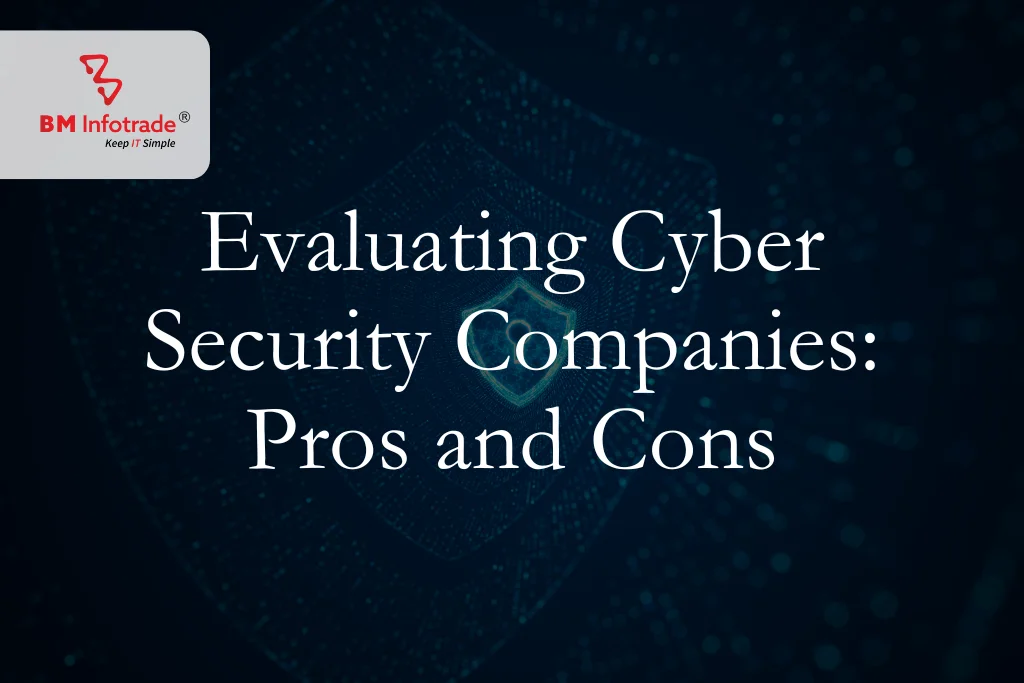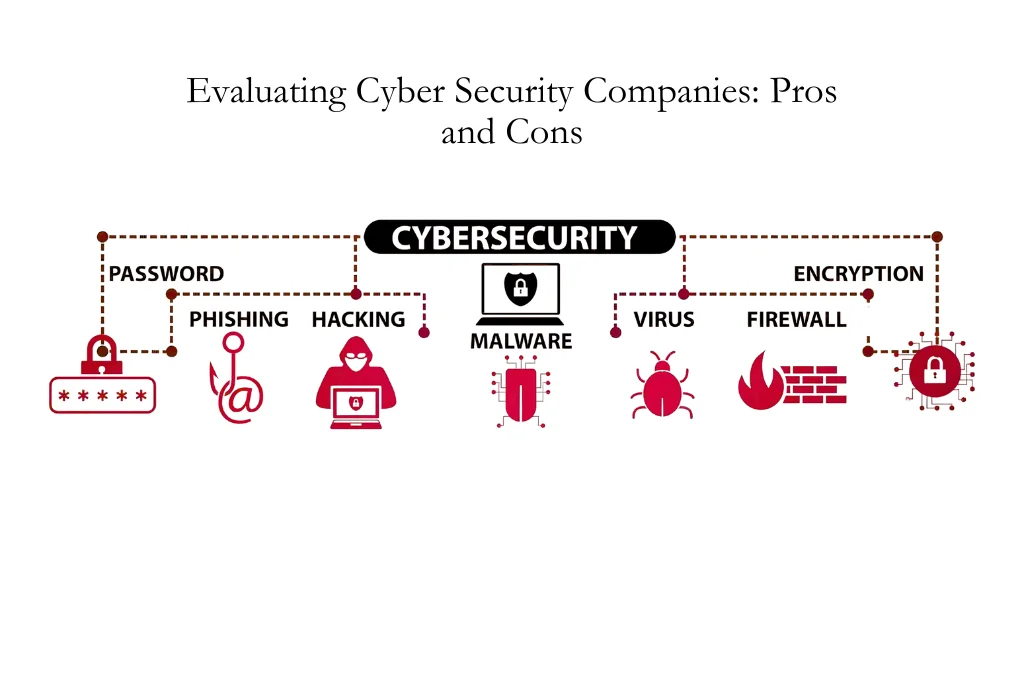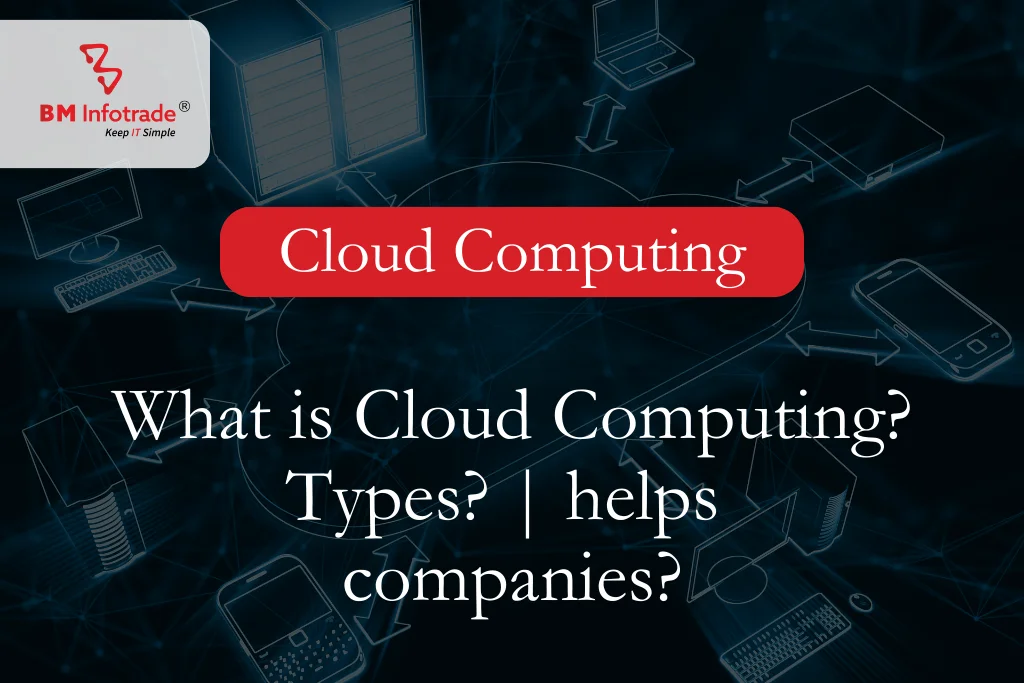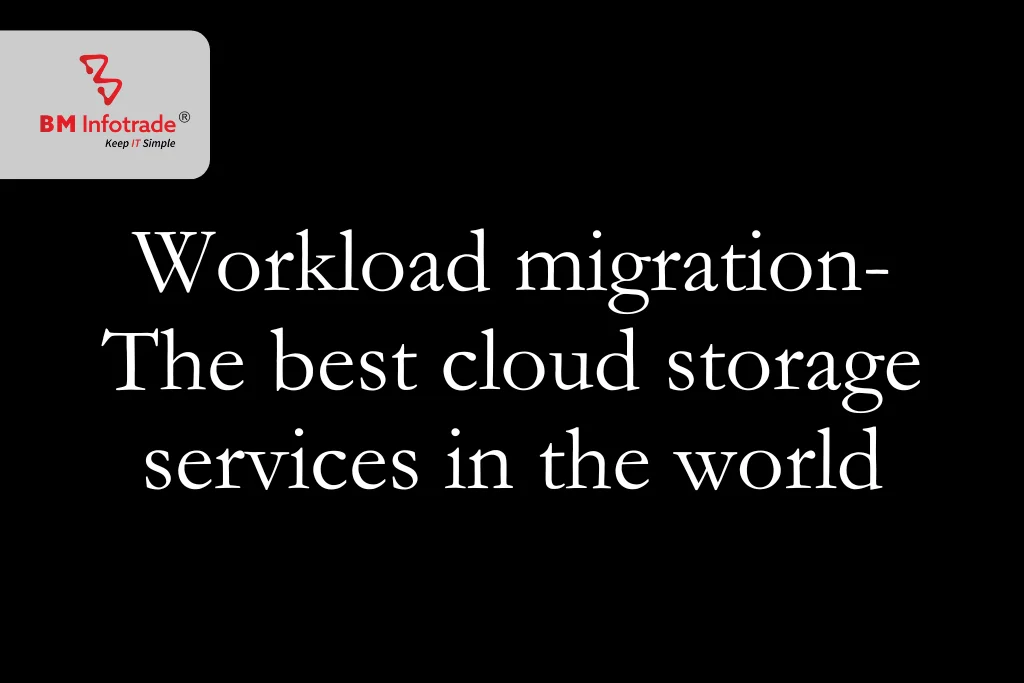Evaluating Cyber Security Companies: Pros and Cons
Explore the pros and cons of evaluating cyber security companies. Learn key factors to consider and how to choose the right provider for your organization’s needs.

Evaluating Cyber Security Companies: Pros and Cons
Cyber Security Companies: The need for strong cybersecurity measures in today's digitally driven world cannot be emphasised. Businesses are more susceptible to a wide range of cyber attacks as they depend increasingly on technology to run their operations. "Cyber Security Solutions" is more than just a catchphrase; it's an essential part of protecting private information, ensuring business continuity, and earning the confidence of partners and customers.
Cyber Security Solutions are essential for protecting companies from the constant assault of cybercriminals. A proactive and flexible strategy for cybersecurity is required due to the growing sophistication of cyber attacks. The urgent need for organisations to assess and invest in comprehensive Cyber Security Solutions that meet the changing threat landscape and go beyond simple compliance will be covered in this introduction.
Table of Contents
- Advantages of Evaluating Cyber security Companies
- Drawbacks of Evaluating Cyber security Companies
- Key Criteria for Evaluating Cyber security Companies
- Case Studies: Success and Failure Stories
- Conclusion
- FAQs
- What role does employee training play in cybersecurity?
- How often should a business update its cybersecurity measures?
- What is the significance of proactive threat detection?
- How do Security Software solutions contribute to cybersecurity?
- What considerations are vital when evaluating IT Security Firms?
Advantages of Evaluating Cyber security Companies
Establishing a robust defense against cyber threats in the intricate cybersecurity ecosystem is made possible by the benefits of evaluating IT security firms. These IT security firms provide customised solutions that are intended to meet the unique requirements and difficulties that organisations across various industries confront. IT Security Firms can offer tailored Cyber Security Solutions that surpass general tactics by comprehending the nuances of industry-specific dangers.
In the field of cybersecurity, proactive threat detection and prevention are crucial, and trustworthy IT security firms are excellent at them. These companies use real-time monitoring and response systems along with sophisticated threat intelligence to spot possible security breaches early on and prevent them from getting worse. Businesses collaborating with IT Security Firms will benefit from the systematic implementation of cutting-edge solutions that guarantee a robust defense against emerging cyber threats.
Businesses have found that IT Security Firms are useful allies in navigating the maze of compliance and regulations. These companies guarantee that the Cyber Security Solutions put in place comply with the relevant regulations since they are knowledgeable about industry standards, legal requirements, and regulatory compliance. This devotion protects companies against the legal consequences of non-compliance in addition to protecting sensitive data.
One distinguishing feature of IT Security Firms is access to knowledge and specialised skills. These companies employ cybersecurity experts with a wealth of expertise and experience who keep up with the most recent changes in the cyber threat environment. Specialists from IT Security Firms are well-equipped to handle changing difficulties thanks to ongoing training and skill development programmes, making them invaluable allies in the pursuit of digital resilience.
Read More: Cyber Security: Importance, Types, Tips, and Examples?

Drawbacks of Evaluating Cyber security Companies
Although there are clear benefits to working with IT Security Firms, it's also critical to be aware of and manage any potential risks when assessing IT Security Firms and the Network Security solutions they provide.
Cost Considerations
Initial Investment: Complete network security solution implementation frequently necessitates a large initial outlay of funds. Businesses must conduct a thorough cost analysis and set aside funds to pay for the procurement, implementation, and setup of the required cybersecurity infrastructure.
Ongoing Maintenance and Updates: Businesses also need to budget for the continuing expenses of updating and maintaining Network Security measures after the initial expenditure. The cost of cybersecurity rises because regular updates are necessary to handle new threats, weaknesses, and technical improvements.
Integration Challenges
Compatibility with Existing Systems: There may be difficulties in integrating Network Security solutions into current IT infrastructures. It takes careful preparation and implementation to guarantee flawless compatibility and the least amount of disturbance to regular operations.
Potential Disruption to Business Operations: The implementation of new network security measures could cause brief hiccups in corporate operations. Companies need to plan their implementation process properly to reduce downtime and keep things running smoothly.
Over-reliance on Technology
The Human Element in Cybersecurity: Despite their technological advancements, Network Security solutions could unintentionally encourage an excessive dependence on automated systems. A key component of cybersecurity is the human factor, which includes employee awareness and alertness in the fight against social engineering assaults and other dangers that target people.
Limitations of Automated Solutions: Despite their strength, network security technologies might not be able to predict or counter new and advanced cyberattacks. Companies need to understand that a comprehensive cybersecurity plan combines technological controls with human-centered methods.
False Sense of Security
Perception vs. Reality: Relying only on Network Security solutions may provide a false sense of security. Businesses should not become complacent, as cyber threats are always changing. A comprehensive cybersecurity strategy necessitates constant assessment and modification.
Continuous Vigilance Needed: No matter how sophisticated, Network Security solutions cannot ensure complete security. Companies need to foster a culture of constant watchfulness by stressing the value of frequent cybersecurity assessments, incident response planning, and employee training.
Read More: Why cyber security? Block the hackers, secure it, and lock it down.
Key Criteria for Evaluating Cyber security Companies
Setting important standards for decision-making is essential as firms begin the process of assessing cybersecurity providers. By taking these factors into account, it is ensured that the IT security firms chosen will meet the unique requirements of the company and offer strong data protection measures. The following are crucial things to remember:
Reputation and Track Record
Case Studies and Success Stories: Consider IT Security Firms in light of their performance history. Case studies and success stories indicate the firm's capacity to provide efficient Data Protection solutions and highlight its expertise in addressing a range of cybersecurity issues.
Client Testimonials: Testimonials from satisfied customers shed light on the practical experiences of companies that have worked with IT Security Firms). Positive testimonials help establish confidence in the firm's ability to supply reliable Data Protection solutions.
Technology Stack and Innovation
Cutting-edge Solutions: Testimonials from happy clients illuminate the real-world experiences of businesses that have collaborated with IT security firms. Testimonials that positively contribute to building trust in the company's capacity to deliver trustworthy Data Protection solutions.
Adaptability to Emerging Threats: Because cyber dangers are always changing, IT security firms need to be flexible. Take into account companies that demonstrate a dedication to innovation and the capacity to modify their Data Protection tactics to effectively combat new threats.
Scalability and Flexibility
Accommodating Business Growth: IT Security Companies ought to provide Data Protection solutions that expand to accommodate expanding businesses. Scalability keeps security gaps from occurring by ensuring that cybersecurity solutions continue to work as the company grows.
Adapting to Changing Threat Landscapes: The cybersecurity landscape is dynamic, with threats evolving. Select information technology security firms that exhibit adaptability in modifying their data protection techniques to efficiently address evolving threat scenarios.
Support and Response Time
Availability of 24/7 Support: Because cyber dangers might appear at any time, it is imperative to have round-the-clock support. IT Security Firms that provide round-the-clock assistance show that they are dedicated to quickly resolving security issues.
Incident Response Time: Analyze IT Security Firms' incident response skills. To reduce possible consequences, security events must be handled quickly and effectively. Fast incident detection and resolution should be part of (data protection) protocols.
Case Studies: Success and Failure Stories
Case studies from the real world provide important insights into how IT Security Firms and their Threat Management solutions are applied in real-life scenarios. Examining cybersecurity best practices as well as failure tales gives firms a comprehensive understanding of how effective IT Security Firms are at Threat Management. Here, we look at several noteworthy examples that demonstrate how IT Security Firms affect businesses:
Highlighting Businesses that Successfully Implemented (Threat Management) Solutions
Proactive Threat Detection: A top financial institution teamed up with an IT Security firm known for its proactive Threat Management strategy in an ever-changing threat landscape. Through the implementation of real-time monitoring, reaction mechanisms, and advanced threat intelligence by the IT Security Firm, the financial institution was able to identify and neutralise possible attacks before they had a chance to exploit weaknesses.
Rapid Incident Response: A highly skilled cyberattack that targeted a global technology company's intellectual property was encountered. The organisation promptly detected the breach and carried out a prompt incident response plan because it had a strong Threat Management policy in place, which was supported by a proactive IT Security Firm. As a result, there was little data exposure and no major impact on corporate operations.
Learning from Instances Where (Threat Management) Measures Fall Short
Inadequate Detection Capabilities: Despite investing in IT Security Firms, a healthcare organisation encountered difficulties because of insufficient Threat Management capabilities. The company suffered a data breach that was long-term and went unnoticed, underscoring the need to invest in IT Security Firms and make sure that their Threat Management tactics are tailored to the particular requirements of the company.
Lack of Employee Training: A manufacturing organisation allowed a successful phishing assault that compromised critical data to occur because it failed to consider the human factor in threat management. The importance of thorough employee training in addition to technology solutions for IT security firms to improve overall threat management capabilities is highlighted by this scenario.
Conclusion
In conclusion, firms must adopt a proactive and strategic strategy due to the constantly changing nature of the cybersecurity field. Assessing IT security companies and their products, such as security software, is an essential first step in defending against the never-ending flood of cyberattacks. Businesses benefit from a strong defense system thanks to the advantages of customised security software solutions, proactive threat detection, and knowledge from IT security firms.
But it's critical to recognise the possible downsides as well, such as upfront expenses, integration difficulties, and the possibility of creating a false sense of security. Companies need to find a balance, understanding that IT security firms and security software are parts of a larger cybersecurity plan that includes human factors, technology, and ongoing monitoring.
FAQs
What role does employee training play in cybersecurity?
Because human error is still a major hazard in cybersecurity, employee training is essential. Staff members receive training on how to spot phishing efforts, manage their passwords securely, and understand their part in upholding general cyber hygiene. The first line of defense against social engineering attacks is an informed workforce.
How often should a business update its cybersecurity measures?
Updating frequently is essential to stay ahead of evolving cyber threats. Companies should assess and update their cybersecurity policies at least once a year, or more often if the organization's infrastructure or the threat landscape significantly changes. By doing this, security procedures are kept up to date against the most recent vulnerabilities.
What is the significance of proactive threat detection?
Anticipating and detecting possible security breaches early on is known as proactive threat detection. Investing in IT security firms that provide real-time monitoring and advanced threat intelligence is imperative for enterprises. Rapid reactions are made possible by proactive measures, which lessen the effect of cyber attacks on corporate operations.
How do security software solutions contribute to cybersecurity?
Solutions for security software offer a technical defense against online threats. They provide real-time protection and include firewalls, intrusion detection systems, and antivirus software. Companies should select security software based on their unique requirements to guarantee thorough protection against a range of cyber threats.
What considerations are vital when evaluating IT security firms?
Businesses should take reputation, technological innovation, scalability, and responsive assistance into account while evaluating IT security firms. Client endorsements and case studies provide information about the firm's performance history. A thorough cybersecurity approach also requires the capacity to modify Threat Management and Security Software tactics in response to shifting threat environments.








Anshul Goyal
Group BDM at B M Infotrade | 11+ years Experience | Business Consultancy | Providing solutions in Cyber Security, Data Analytics, Cloud Computing, Digitization, Data and AI | IT Sales Leader